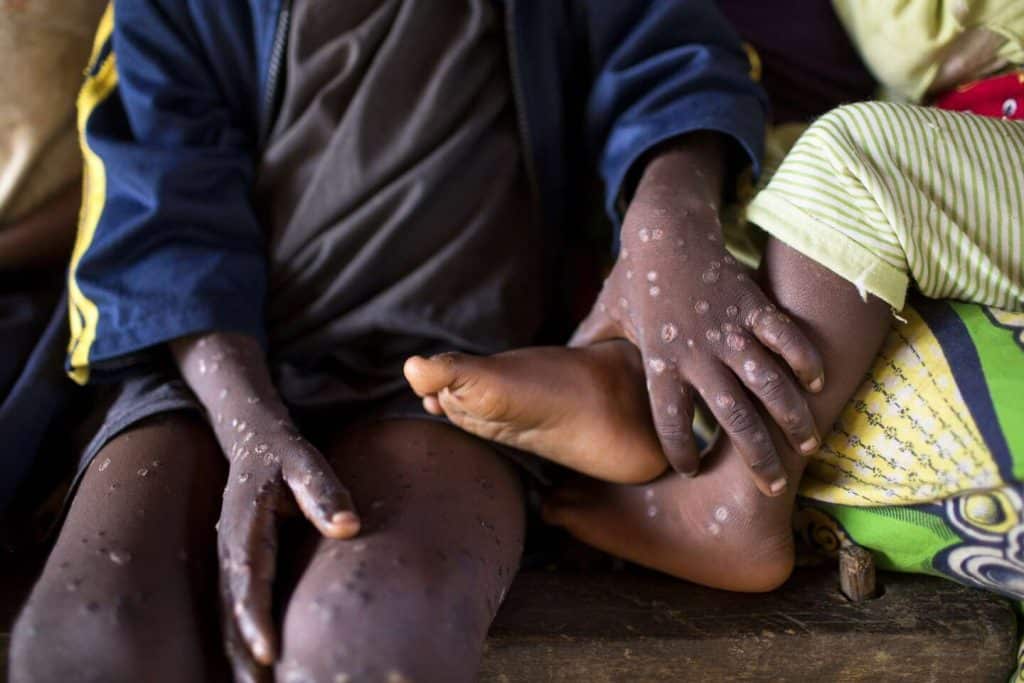Health
Cholera Outbreak: UNICEF Proffers Solution to Lagos

Eko Hot Blog reports that the United Nations Children’s Fund (UNICEF) has urged the Lagos State Government to urgently provide high-standard water and sanitation facilities to communities to curb the cholera outbreak in the state.
Chief of UNICEF Lagos Field Office, Celine Lafoucrier, made this call on Saturday in response to the ongoing cholera outbreak that has affected multiple Local Government Areas, resulting in 17 confirmed cases and 15 deaths.
To reduce the fatality associated with the disease, UNICEF called on the state government to strengthen its healthcare systems to be capable of responding effectively during outbreaks.
The international organization also encouraged the state government to lead educational campaigns on cholera prevention to protect children and the broader population.
Lafoucrier emphasized the urgent need for improved access to clean water and sanitation in many areas, highlighting that the cholera outbreaks underscore this necessity.
On Saturday, the state Ministry of Health confirmed 350 suspected cases of cholera across 29 wards in multiple LGAs, with 17 confirmed cases and 15 deaths.
The Nigeria Centre for Disease Control and Prevention reported on Thursday that Nigeria recorded 65 confirmed cases of cholera with 30 deaths from January 1 to June 11 across 96 local governments in 30 states.
Cholera, a highly contagious food and water-borne disease, spreads through direct transmission by consuming contaminated food or water, and indirectly due to poor sanitation and lack of handwashing. Symptoms include acute, painless watery diarrhea, vomiting, nausea, and fever.
EDITOR’S PICK
- Implementing Unsustainable Minimum Wage Will Lead To Job Loss – FG Warns NLC
- Tinubu’s Speech: No Consensus Reached On National Minimum Wage – NLC
- 25 Dead In Enugu Highway Crash Involving 10 Vehicles
Lafoucrier noted that despite efforts by the state government to provide water to its population, the current outbreak demonstrates the need for an urgent focus on ensuring the water provided is clean and safe.
She stated, “Addressing the challenges of cholera outbreaks requires a deliberate focus of state policies to provide high-standard water and sanitation facilities, as well as strengthened healthcare systems capable of responding to the demand in times of outbreaks, and state-led educational campaigns on cholera prevention to protect children and the population at large.
“To alleviate cholera outbreaks, a comprehensive approach is essential. Sustainable WASH infrastructure and strengthened health systems capable of anticipating epidemics as well as, effective community engagement strategies are crucial to halt transmission.”
Lafoucrier emphasized that preventing cholera centers on good sanitation and hygiene practices. This includes enhancing water, sanitation, and hygiene infrastructure, implementing rapid surveillance, promoting social mobilization, administering treatment, and utilizing oral cholera vaccines.
“Key actions include proper disposal of faeces, eliminating open defecation, and ensuring access to potable water. Regular handwashing with clean, running water and soap is vital. Additionally, avoiding the consumption of uncooked vegetables, unwashed fruits, raw or undercooked seafood, and food from street vendors is important to reduce the risk of cholera infection,” she said.
Lafoucrier affirmed that good water and sanitation infrastructure play a crucial role in reducing disease outbreaks like cholera, which causes an estimated 100,000 deaths annually.
She noted, “Water, sanitation, and hygiene interventions are fundamental in preventing and responding to cholera epidemics. Safe water supplies, hygienic sanitation, and effective water management are key elements in this effort. Increasing access to safe drinking water, improving sanitation and hygiene, and better water management can prevent almost one-tenth of the global disease burden. Community access to sanitation, like simple latrines, prevents drinking water contamination from human waste, reducing infections.”
She also highlighted that regular handwashing with soap and safe drinking water storage are high-impact practices.
EDITOR’S PICK
- NLC Challenges Tinubu’s Stance On Minimum Wage Affordability
- 100 Eid-El-Kabir Message, Prayers And Quotes For Family, Friends
- Russia’s Naval Showdown: Pacific Fleet’s Drills In Sea Of Japan
“Investing in drinking water, sanitation, hygiene, and water resource management systems is economically beneficial. Each dollar invested yields up to eight dollars in benefits. Safer water could annually prevent 1.4 million child deaths from diarrhea, 500,000 deaths from malaria, and 860,000 child deaths from malnutrition, and protect 10 million people from serious illnesses like lymphatic filariasis and trachoma,” she said.
She also emphasized the impact of the disease on the health of children, stating that recurrent cholera outbreaks critically affect children and populations at large. These vulnerable groups face substantial health risks, particularly those under five who are prone to severe dehydration and higher mortality rates.
Lafoucrier added, “Educational disruption is yet another critical consequence of cholera outbreaks, as illness and the need to care for sick family members lead to school closures and reduced attendance, hindering children’s learning and development. Similarly, post-recovery issues in children can include malnutrition, stunted growth, and weakened immune systems, increasing susceptibility to other diseases.”
Click here to watch video of the week
Advertise or Publish a Story on EkoHot Blog:
Kindly contact us at ekohotblog@gmail.com. Breaking stories should be sent to the above email and substantiated with pictorial evidence.
Citizen journalists will receive a token as data incentive.
Call or Whatsapp: 0803 561 7233, 0703 414 5611


















